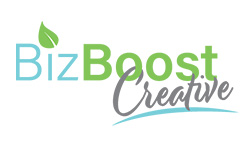For a business trying to reach new customers or clients, a website is a valuable marketing tool. It can be used to inform visitors about the services and products you provide, as well as the benefits they will receive if they buy from you.
However, not all websites are effective. Some fail to convert the number of clients the business was hoping for. Why? There are many possible reasons, but the most common is:
The website has been developed with a “build it and they will come” mentality.
It’s no longer just enough to build a website. You also need to then plan on how you will get visitors to come to that site.
We speak to so many people who are frustrated after pouring all their time an effort into a new website, only to find out that no one is visiting. To avoid this, it’s important to incorporate other methods of promotion into your marketing strategy.
Where is your market?
The first question you should ask when considering how to increase traffic to your website is:
Where does my target market look for a product/service like mine?
This will be different for every business and industry. For example, a caravan park might decide that their target market often turns to Google when looking for accommodation options in their area. Alternatively, a hairdresser might hear many clients say they first found them when searching Instagram for hairstyle inspiration.
With so many different ways to promote your business, knowing how your target market behaves will help you decide where you should focus your efforts and money.
Methods of Increasing Traffic
There are many different ways of increasing website traffic. Here are just a few you might want to add to your marketing strategy
- Optimising your website for Search Engines
Search Engine Optimisation or “SEO” is jargon to describe the steps a person might take increase the likelihood that their website will rank highly in a search engine like Google or Bing. The goal here is to appear at the top of the search results when a potential customer or client is looking for a solution that you could provide.
SEO is becoming increasingly more important as the number of people using search engines to find local or online businesses grow each year. For more information on how they work and how to optimise your website, visit our article, Search Engine Optimisation 101.
- Social Media
Social Media platforms (like Facebook, Instagram, Twitter etc) are becoming increasingly more crowded with business advertising each year. As such, it’s much harder than it used to be to get noticed and should not be the only tool in your marketing toolbelt.
However, it can still be a great place to increase engagement with your audience and direct a few more potential customers to your website.
For more information on increasing your website traffic using social media, visit our article here.
- Industry Distributors
An industry distributor is an independent company that promotes similar businesses to a wider market. An example of this will be websites like Airbnb, Expedia and Hotel Trivago that collate information on various accommodation places in the one place. The benefit to users is that they only need to go to one place in order to compare the different options available to them.
A tourism centre is a ‘bricks and mortar’ example of an industry distributor. Most have shelves of different brochures that advertise local accommodation and businesses that may be of interest to people visiting the area.
Another example is a club or association in your industry. For example, a sheep breed association might promote studs that sell that particular breed. A car club might promote retailers that sell replacement parts for certain cars.
While there is often more competition in these places, there is also often more potential customers and clients to be found. An additional benefit is that you can leverage the larger businesses online presence. A small B&B might find it harder to compete with the larger hotels and distributors in the Google search results but will appear in the list of options on Airbnb (who is already ranking highly in the search results.
- Get listed and reviewed on online directors
Online directories include businesses like TripAdvisor, Yelp, Google My Business, Yellow Pages, Hotfrog. They are very similar to industry distributors, but rarely offer methods of booking or purchasing through the site. Instead, they are used more to share information and reviews on businesses.
Having your business listed and reviewed on these sites is a great way to promote your website and business as a whole. Like with the industry distributors, you can leverage the reach that these large companies already have with potential customers and clients. Good reviews also provide social proof that others have visited and like your business.
This is by no means a comprehensive list, so if you have other ideas that could be useful to readers, please leave them in the comments below!











